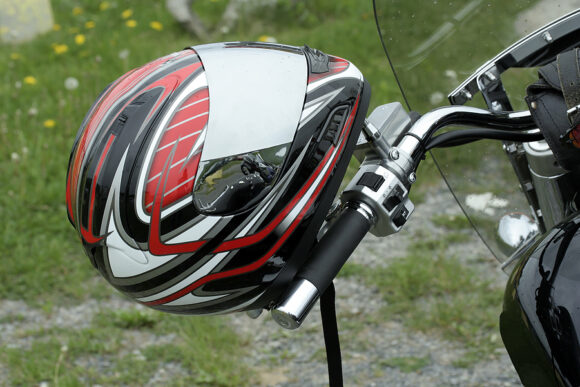Advocates hoping to finally reinstate Connecticut’s full motorcycle helmet law enlisted a wider group of allies this year, following decades of being thwarted by well-organized opponents. But it’s questionable whether it will be enough.
With less than two months left in the 2019 legislative session, a universal helmet law has already been stripped from a larger bill. A second bill, which increases the age _ from 18 to 21 _ required for operating or riding a motorcycle with a helmet, is still alive and awaiting action in the House of Representatives.
Advocates, who believe that second bill falls short, are now working to find a lawmaker willing to try to amend it during the remaining days of the session with the universal helmet law language. They acknowledge it’s been a challenge.
“Guess what? It’s a contentious issue,” said Garry Lapidus, director of the Injury Prevention Center at Hartford Hospital and Connecticut Children’s Medical Center.
“I’d like to think that there are enough lawmakers that understand finally that this is an important issue that puts a big burden on our state and the opposition is really a small but vocal minority,” he said, adding how 50 people on average die each year in Connecticut from motorcycle crashes.
Lapidus and members of the medical community who’ve traditionally lobbied state lawmakers to support a universal helmet law began last year expanding their base, reaching out to pro-helmet law motorcycle riders, motorcycle instructors, police chiefs, national advocates, brain injury experts and others to create the “Heads First CT” campaign. They created a video message that was sent to every state lawmaker, with one motorcycle safety instructor saying there’s a large number of motorcycle riders who believe head protection is absolutely necessary.
The advocates also embarked on media campaigns, and managed to include a recommendation for a universal helmet law in a transition committee advisory report to Democratic Gov. Ned Lamont, who has expressed support for the legislation.
Rich Paukner, the acting legislative director for the Connecticut Motorcycle Riders Association, a group which opposes universal helmet law legislation, gives credit to the proponents for being better organized this year and adopting many of the techniques his group has used over the years, such as showing up for public hearings in garb that makes them stand out at the public hearing.
“They had a riding instructor that showed up in his EMT outfit,” he said.
But Paukner contends the motorcyclists have facts on their side, arguing that “incredible strides” have been made to improve motorcycle safety and reduce deaths and injuries in Connecticut since the state’s helmet law was repealed in 1976. And he said he has worked hard this year to make that argument to a host of new state legislators who don’t know the history of Connecticut’s helmet law.
“We got behind the rider education program. We got increased funding for it. We got an insurance discount that was mandatory for those who took it,” he said. “We’ve come light years.”
Paukner, whose group is supporting the bill mandating helmet use up to age 21, said the only thing Heads First CT wants is a universal helmet law.
“They think that’s the answer to everything,” he said. “It’s not.
Heads First CT says motorcycle crashes are blamed for an average of 250 hospital admissions and 1,700 emergency room visits each year, with half of the people not wearing helmets. The Centers for Disease Control and Prevention estimates it cost the state taxpayers $157 million last year in lost productivity and medical costs. But Paukner said not all medical professionals believe motorcyclists constitute a “unique social burden.” He said despite not having an adult helmet law, there have been substantial cumulative reductions in motorcycle fatalities and injuries in Connecticut.
Currently about half of the states in the U.S. require all motorcycle riders to wear helmets.
The legislative session ends June 5.
Was this article valuable?
Here are more articles you may enjoy.


 Hackers Hit Sensitive Targets in 37 Nations in Spying Plot
Hackers Hit Sensitive Targets in 37 Nations in Spying Plot  Canceled FEMA Review Council Vote Leaves Flood Insurance Reforms in Limbo
Canceled FEMA Review Council Vote Leaves Flood Insurance Reforms in Limbo  Uber Jury Awards $8.5 Million Damages in Sexual Assault Case
Uber Jury Awards $8.5 Million Damages in Sexual Assault Case  Cape Cod Faces Highest Snow Risk as New Coastal Storm Forms
Cape Cod Faces Highest Snow Risk as New Coastal Storm Forms 